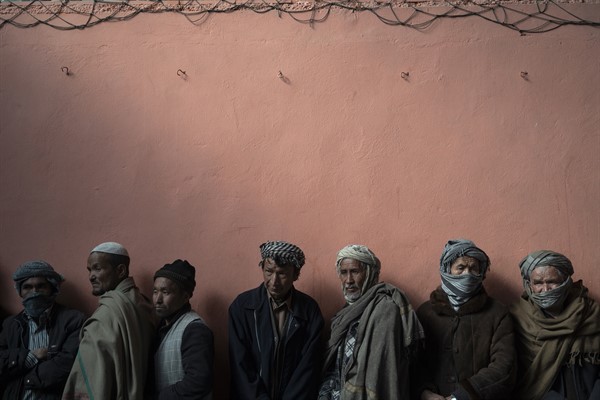After the Taliban retook control of Afghanistan in August, the world watched in horror as Afghans tried to escape the new regime by boarding evacuation flights at the Kabul airport—crossing gunfire, braving suicide bombs and slogging through sewage ditches to do so, and even clinging to airplane landing gear when they failed to board the flights themselves. The horror was compounded by a widely felt sense that international policymakers were unprepared, and that the nightmare scenario unfolding could have been prevented, or at least mitigated.
This winter, however, an even worse catastrophe could unfold: Afghanistan’s economy is in ruins, and millions of Afghans are suffering from a lack of food and other basic needs, even as parts of the country remain wracked by violence. The current distaste in many foreign capitals for granting legitimacy to the Taliban, along with a lack of long-term strategic thinking among outside powers, are poised to make the international community as unprepared as ever.
“Afghanistan is now among the world’s worst humanitarian crises—if not the worst,” David Beasely, the head of the World Food Program, said in a recent statement. “We are on a countdown to catastrophe.”

